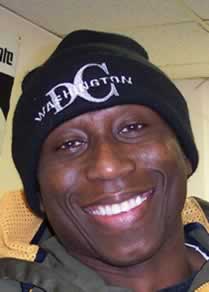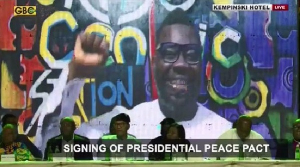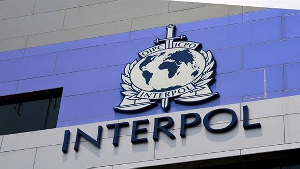When the curtain was finally drawn on the 2012 London Olympic Games on that glorious Sunday night some two weeks ago, Ghana was once again among the also-rans. The last time this country‘s name appeared on the medals table at the Olympics was at the 1992 Barcelona Games when the Black Meteors won bronze in football, which incidentally was the first time an African team grabbed honours in that discipline.
Of course, that feat was effectively put in the shade at the next two subsequent Olympics in 1996 and 2000 by Nigeria and Cameroun, respectively, both countries winning gold. But the breakthrough effort by the Meteors was without doubt significant and any hope that it would inspire a flurry of medals for Ghana at the global extravaganza are yet to materialize.
Olympic records have it that Ghana’s three other medals have all come from boxing. They are one silver, won at the 1960 Games in Rome by Clement (Ike ) Quartey and two bronze garnered by Eddy Blay (Rome 1964) and Prince Amartey (Munich 1972 ). In truth, therefore, Ghana has never really had a glorious Olympic history, even though some of us sometimes try to tell those who want to listen that this dear nation of ours is great in the sporting arena.
Apart from boxing being one discipline that has been a source of pride at several international competitions, including the Olympics, the same cannot be said for a sport like athletics, for which Ghana has consistently presented participants since the country first participated in the global event in Helsinki in 1952, then as a British colony, the Gold Coast.
Indeed, the best performance in either track or field to date was at the 1972 Munich Games where Joshua Owusu narrowly missed the long jump bronze medal, placing a close fourth in the event. At the same Games, Alice Anum, without doubt, Ghana’s greatest woman athlete, placed sixth and seventh in the100m and 2oom finals, respectively.
Then at the Atlanta Games in 1996, Ghana lost perhaps the best chance to win a medal in athletics when the men’s 4x 100m relay quartet qualified for the final only to be disqualified on the day due to a mix-up in the selection of the quartet.
But, dear reader, those were the days when one could say with a certain amount of certainty that contingents leaving the shores of Ghana for the Olympics were adequately prepared to make the country proud, even though their best did not almost always produce to our lofty expectations. But I daresay anybody who had any hopes for even the slightest hint of success by what arguably was the smallest and without doubt a poorly-prepared contingent to represent this nation at the London 2012 Olympics was just building castles in the air.
The four boxers and three athletes, plus the judoka and weightlifter who had gone through the various modes of qualification, could not be said to have had the best of preparations for no less a contest than the Olympic Games which every four years bring together well-groomed, well-motivated sportsmen and sportswomen from all over the globe ready to put their best foot forward in the battle for medals.
The days when the so-called Olympic ideal told us that merely taking part is the essence of the Games are long gone, indeed forgotten, if not interred with the bones of Pierre de Coubertin, the father of modern Olympics. The Games have now become battlefields where nations display their prowess and in more ways than one have grown into a symbol of a superiority contest. That is why for some nations no expense would be too much, as would be the time and planning that have to go into executing the medal-grabbing project.
Please, can you, dear reader, compare that approach and attitude to the atmosphere of chaos and utter confusion from which Ghana sports emerged to put a semblance of a contingent together for the London Games?
Do you remember that long, unholy war for control of the Ghana Olympic Committee (GOC) that lasted almost a year while the Olympic Games were fast creeping in on us? Do you remember that the situation became so bad that somewhere along the line, Ghana stood in danger of being banned by the International Olympic Committee (IOC)? This was because people were more interested in winning the power struggle that was raging and care less about the consequences of their actions?
The sages tell us that you reap what you sow and where the lust for power and authority is allowed to have free reign, one cannot expect the end result to be any different. Someone once said, even in hell there is some order. In this case, it was as if nobody cared when two elephants in the shape of the B.T. Baba faction and the Francis Dodoo-led group were engaged in a do- and die battle for the soul of the GOC, with all the dirty political undertones. In the end, it was the grass in the shape of Olympic preparations that suffered.
Perhaps, it was even something close to a miracle that those boxers and athletes managed to qualify for London. But it was clear as night follows day that nothing short of an unprecedented miracle of gargantuan proportions could positively affect the fortunes of the contingent in London. GOC president, Prof. Dodoo, himself an ex-Olympian, was reported to have complained about the lack of adequate preparation for the athletes, who at one stage had to break camp due to unavailability of funds.
It was, therefore, ironic that on the eve of the Games, the GOC announced some mouth-watering bonuses for those capable of winning medals, with a gold medalist assured of as much as $20,000. This was rightly met with derision and anger by many. Someone likened it to a father, who failed to provide the basic materials for his child’s education with the excuse that he had no money.
However, on the eve of the child’s examination, the same father promised to buy the son an air ticket to enable him fly to the USA on holiday, if he came out with flying colours.
Putting the cart before the horse has never worked in any normal human endeavor and that is the point boxing legend, Professor Azumah Nelson made when he said the boxers would return home without a medal. Of course, it didn’t require somebody with his expertise and experience to make that prediction and yet his statement was met with some scathing comments, with somebody asking him to offer words of encouragement, instead of been as brutally frank as he was.
That is one huge problem with this country. Anytime, someone knowledgeable is bold to face the reality and tells it as it is, he is sure to be confronted by some eternal do-gooders who are quick to drown his comments in a din of utter nonsense, which they wrongly believe is a sign of patriotism. After what has happened, I hope those people would apologise to the living legend. If they don’t, which is most likely, I believe Azumah would just forgive them for exposing their ignorance and hypocrisy.
I will also make a general plea that instead of wasting our time on another ‘What went wrong’ exercise, we should instead concentrate our energies on finding solutions to the well-known bottle-necks, challenges and visionless leadership that have for so long bedeviled the forward march of Ghana sports.
We don’t need to be reminded that the next Olympic Games are only four years away and for the more forward-looking sporting nations the countdown has already begun for Rio de Janeiro 2016.
A perfect example of what I call forward-looking is the announcement on the eve of the closing ceremony of the London 2012 Olympics by the British Prime Minister, David Cameron. He assured his people that his government had thrown a whopping 500 million pounds into the hat for preparations to begin in earnest by Team Great Britain for the next and future Games.
“I want one of the legacies of these Games to be our athletes triumphing in Rio in 2016 and in future Games. Guaranteeing this funding will help ensure that happens”, the Prime Minister is reported to have said.
There is little doubt that Mr. Cameron has been inspired not only by the successful hosting of the Games but also the outstanding performances of Team Great Britain, who placed third behind the United States and China and is anxious that the spirit must be sustained by the funding boost.
And that was a great statement of intent by the British PM. His country had just produced the best Olympic performance ever and like Oliver Twist, he is asking for more. And what’s more important, he is putting his money where his mouth is.
If one might ask, what will be Ghana’s response after yet another fiasco? We can’t wait to be given some cogent answers and assurances based on concrete plans backed by a budget, which if well utilized, can change the face of Ghana sports dramatically. If we can afford those mouth-watering bonuses, like what was promised potential medalists in London, then we have to be prepared to show how serious we are by providing the funds for proper preparation and grooming first for Rio 2016.
Then and only then can we hope to justify the extravagant promises and the penchant for accompanying our contingents with hugely disproportionate number of officials, whose presence at such Games is as mind-boggling as it is difficult to defend.
Some 45 officials were said to have accompanied the nine ill-prepared athletes to London. Surely, this can’t be right and the Ghanaian taxpayer is entitled to be told why and how this happened, if the report is true. On our part, we promise to pursue this subject to its logical conclusion. In other words, we shall revisit the issue soon.
League Report of Wednesday, 22 August 2012
Source: Joe Aggrey/Finder Sports
Yet another fiasco

















